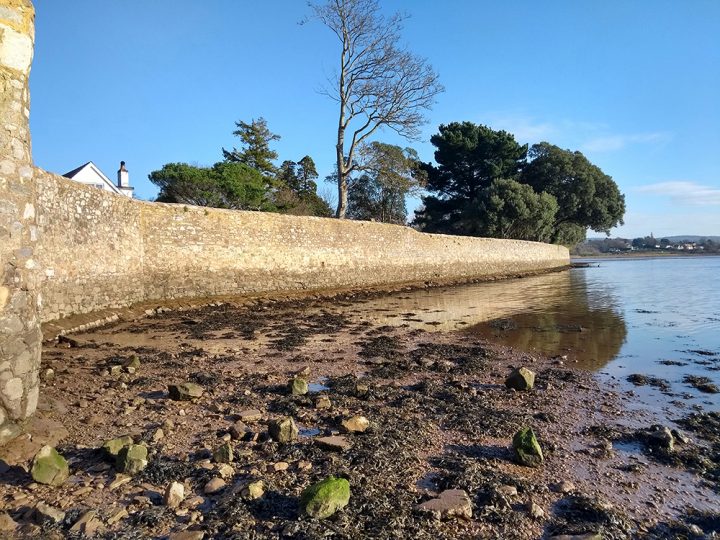Reading Water: ships, wars, trade, slaves
7 December 2020

6 December 2020
Behind the wall at Riversmeet, the sun warm on my face, protected from the wind, I print the mud, we watch a heron and an egret, closer than I have ever seen them, stock still at the water’s edge, then stepping, purposefully to gain a new perspective. We hunt for ancient treasure: bottle, military buttons, pottery from ages past.
Topsham was once the second largest port after London and an important shipbuilding town.
Standing in the warm sunshine at Riversmeet House, where the Exe meets the Clyst, staring out to the sea in the distance; in Emily Dickinson’s words in ‘My river runs to thee’, ‘Say, sea, Take me!’ I feel the real desire to swim, but this isn’t a good place.
Making our way upriver along the foreshore, past the Dutch houses and former shipyards, I think of one of my favourite childhood poems, so wonderful to recite:
‘Quinquireme of Ninevah from distant Ophir,
Rowing home to haven in sunny Palestine,
With a cargo of ivory
And apes and peacocks,
Sandalwood, cedarwood and sweet white wine.’
Each verse is steadily less romantic and more grubbily realistic, but it’s incredibly visually rich, and has such wonderful rhythm that I never tire of it.
Riversmeet was built by one of the major shipbuilders and I stand and imagine the great wooden bombships heading in the once-deep channel to the sea. One of these ships was present at the battle of Fort McHenry in America during the 1812-1815 war, and a poem was written about the battle. That poem became the American National Anthem, linking the small town of Topsham with one of the great events of American history.
‘And the rocket’s red glare, the bombs bursting in air,
Gave proof through the night that our flag was still there;
O say does that star-spangled banner yet wave
O’er the land of the free and the home of the brave?’
(‘Star-spangled Banner’ – Francis Scott Key)
The shipbuilder’s family (Davy) was also deeply involved in the slave trade, as were many families in Devon, and we are reminded how rivers, tides and ocean currents connect us with the world and how they have been integral in how trade routes developed. In ‘The Negro speaks of Rivers’, Langston Hughes names rivers which embody human history, particularly Black History.
I once kayaked downriver into a side channel, overgrown with willows and reeds, it felt like Florida swampland, and we like intrepid explorers. On those days the river is all rivers and all stories.
‘I’ve know rivers ancient as the world and older than the flow of human blood in human veins.’